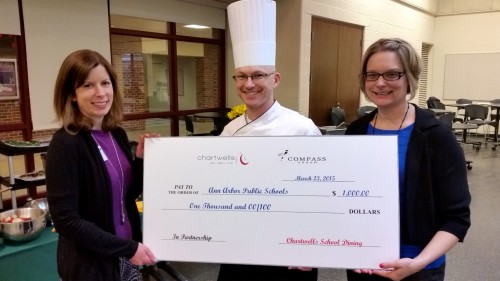
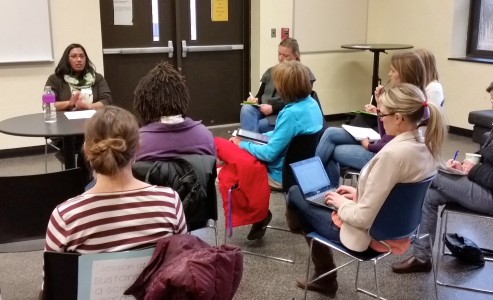
Story and photos by Jo Mathis
AAPS District News Editor
It may be nippy this week, but those attending the Ann Arbor Public Schools Farm to School Collaborative’s School Gardens Workshop Monday set their thoughts on sunny skies and the prolific produce to come.
Held Monday evening at Pioneer High School, the workshop was for educators and volunteers already involved in the 19 AAPS school gardens, as well as those interested in starting one.
Amanda Ng, a health educator for Washtenaw County Public Health, noted that not every district has a Farm to School program.
“So it’s wonderful that Ann Arbor has it here,” she said, citing the wealth of networking, resources, and support for the parents, teachers and volunteers working in the gardens.
The Farm to School Collaborative is a national movement that connects children to the source of their food. Children can learn about farming and farm careers, culinary skills, and nutrition.
Using local food in the school food service supports local and regional farms in their efforts to be sustaining contributors to the local economy. AAPS gardeners often donate their produce to Food Gatherers.
Over the past several years, the collaboration has:
- Established Farm Fresh Features.
- Provided elementary school produce carts, which are stocked daily with fresh and local salad bar items, when available. The carts are available to all students regardless if they pack a lunch or buy a hot lunch.
- Launched the “Farmer in the Classroom” program (now coordinated by Agrarian Adventures)
- Supported school gardens
- Incorporated gardening into Rec & Ed summer camps, in particular Green Adventures Camp
- Promoted National Farm to School Month
King Elementary fifth grade teacher Neha Shah led one of Monday’s workshops, where staff and parents learned about starting and sustaining school gardens.
“It was wonderful to see so many people interested in the information we all presented on school gardens,” said Shah, who spearheaded the program at King in 2012 and is the teacher in charge of it there. “The momentum for school gardening and bringing healthy nutritious homegrown food to students is growing.”
Jenna Bacolor, executive director of Community Education and Recreation, noted that it’s not a simple thing to start a school garden, which demands adequate water, sun, and land, and requires the support of many volunteers and school administrators.
Still, she thinks it’s doable for every school in the district.
Bacolor said AAPS meets all three core elements of the national Farm to School Network, which requires only one. Those three elements are procurement—sourcing local farm produce into cafeterias; education; and supporting school gardens.
“But we’re always overachievers,” she said with a smile.
Many teachers take their classes on field trips to the Ann Arbor Farmers’ Market, and several Rec & Ed camps take field trips there and learn about organic gardening, she said.
Sarah Dewitt, manager of the Ann Arbor Farmers’ Market, has been a member of the collaborative for three years.
“There’s a lot of community support not just for school gardens, but getting local produce into the schools, and also getting kids out into the community, whether that’s to the farmers’ market or out to a farm just to see where their food comes from,” she said. “We want all of our customers to know where their food comes from, down to the youngest child. We believe that the kids who start out knowing about this stuff are going to be the kids who shop at our farmers’ market or become our farmers.”
Heather Holland, food service director at Chartwells, explained that because of Health Department regulations, Chartwells is not able to serve produce from the school gardens in school lunches.
Still, Chartwells always tries to purchase more Michigan-grown food to serve in the cafeterias, and the Farm Fresh Features program brings in food from local farms for children to try for free.
“Our goal is to bring fresh healthy food to the students in Ann Arbor Public Schools,” Holland said. “We try to source as much of our produce locally as we can.”
Holland presented an award of $1000 from Chartwells to Lawton Elementary to start a garden there.
The Lawton community has much to look forward to, according to Neha Shah, who said the King Learning Garden offers a place to learn about the importance of locally grown food, sustainability and the biodiversity that exists in its schoolyard.
“We collectively work to integrate the Ann Arbor Public School District curriculum into our garden program to offer students a multidisciplinary and differentiated instructional approach to learning,” said Shah. “There are opportunities for students to move, use their senses, and work hands on in our garden to provide a holistic learning environment.”
She said the King garden is well cared for all season and loved by the King community.
“The bottom line is that our students love working in the garden and being outside,” she said.
Ann Arbor Farm to School Collaboration members, in addition to AAPS, are: Chartwells Schools Dining Services; Agrarian Adventure: Ann Arbor Farmers’ Market; Food Systems Economic Partnership; Project Healthy Schools; and Washtenaw County Public Health.
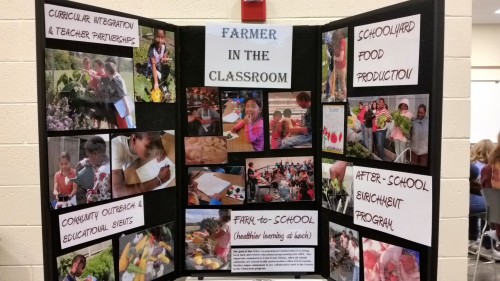
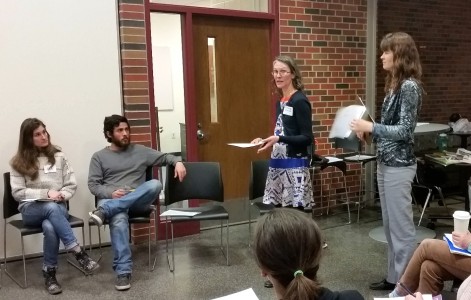
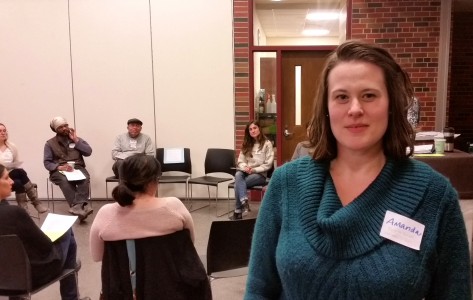
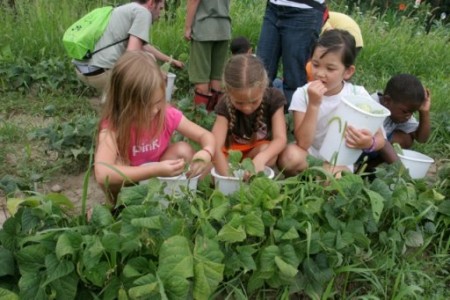

Be the first to comment